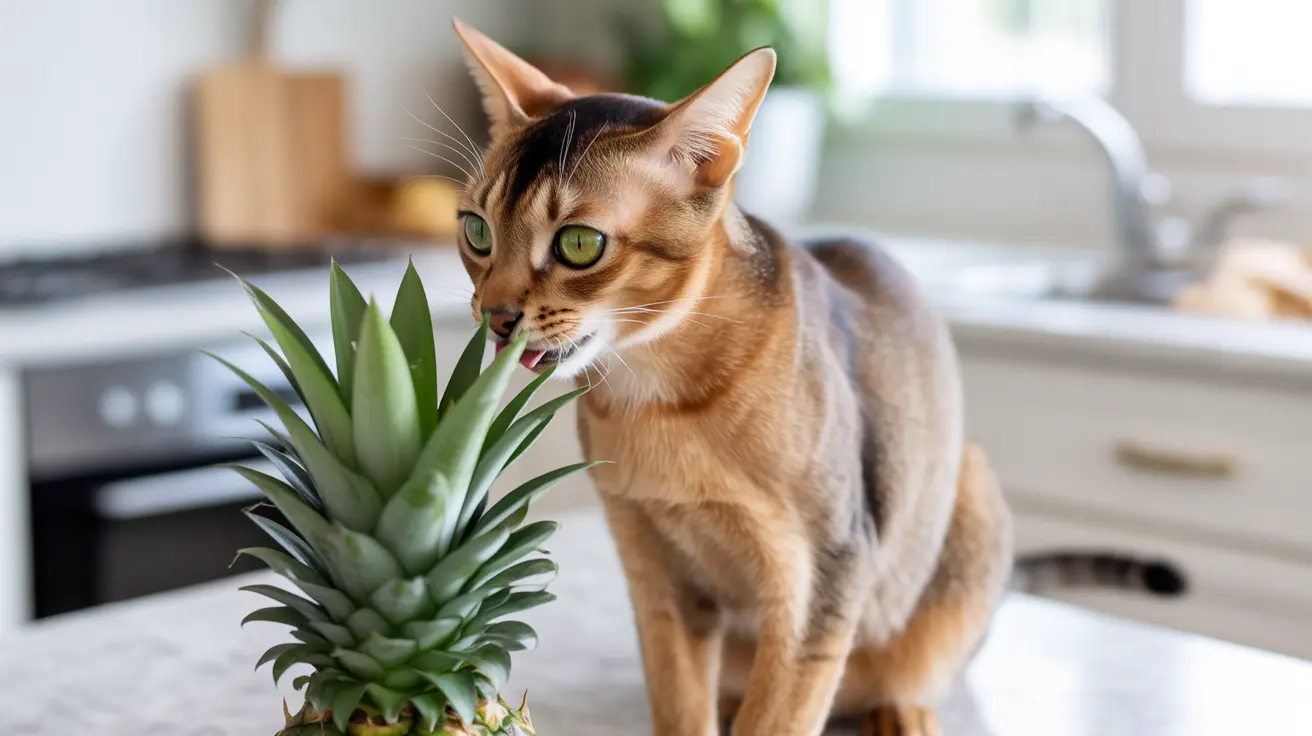Understanding the Composition of Pineapple Leaves
Pineapple leaves are primarily composed of tough, fibrous material - specifically about 80% cellulose, 10% hemicellulose, and 5% lignin. This composition makes them extremely difficult for cats to digest, as felines lack the necessary enzymes to break down these plant fibers effectively.
Physical Risks and Health Concerns
While pineapple leaves aren't toxic to cats, they present several physical risks:
- Choking hazards due to their tough, stringy nature
- Potential gastrointestinal blockages
- Mouth and throat irritation
- Digestive system complications
Digestive System Impact
Cats are obligate carnivores, meaning their digestive systems are specifically designed to process meat. When they consume pineapple leaves, several issues can arise:
- Difficulty passing the fibrous material
- Stomach upset and discomfort
- Possible intestinal obstruction
- Vomiting or diarrhea
Signs Your Cat Has Eaten Pineapple Leaves
Watch for these warning signs if you suspect your cat has consumed pineapple leaves:
- Excessive drooling
- Vomiting or retching
- Changes in appetite
- Lethargy or unusual behavior
- Difficulty defecating
- Abdominal pain or discomfort
Prevention and Safety Measures
To protect your cat from the risks associated with pineapple leaves:
- Keep pineapple plants out of reach
- Dispose of pineapple tops and leaves securely
- Provide cat-safe alternatives for plant-curious felines
- Consider growing cat grass as a safe alternative
When to Seek Veterinary Care
Contact your veterinarian immediately if your cat shows any of these symptoms after consuming pineapple leaves:
- Persistent vomiting
- Signs of abdominal pain
- Lethargy or depression
- Difficulty breathing
- Loss of appetite lasting more than 24 hours
Frequently Asked Questions
Are pineapple leaves toxic or harmful to cats if ingested?
Pineapple leaves are not toxic to cats, but they can be harmful due to their fibrous nature and potential to cause choking or intestinal blockages.
What health risks could my cat face from eating pineapple leaves?
The main risks include choking, gastrointestinal obstruction, digestive upset, and physical irritation to the mouth and throat.
Can pineapple leaves cause digestive problems or blockages in cats?
Yes, pineapple leaves can cause significant digestive problems and blockages due to their tough, fibrous nature and cats' inability to properly digest plant material.
Is it safe to give my cat pineapple fruit, and how is it different from the leaves?
While small amounts of pineapple fruit are generally safe for cats, the leaves should be avoided entirely. The fruit is softer and more digestible, though it should only be given as an occasional treat.
What should I do if my cat accidentally eats pineapple leaves and shows symptoms?
If your cat shows any symptoms after eating pineapple leaves, contact your veterinarian immediately for professional guidance and potential treatment.
Conclusion
While pineapple leaves aren't toxic to cats, they pose significant physical risks and should be kept away from your feline companions. If you suspect your cat has consumed pineapple leaves, monitor them closely and seek veterinary care if concerning symptoms develop. Focus on providing cat-safe alternatives and maintaining a safe environment for your pet.






